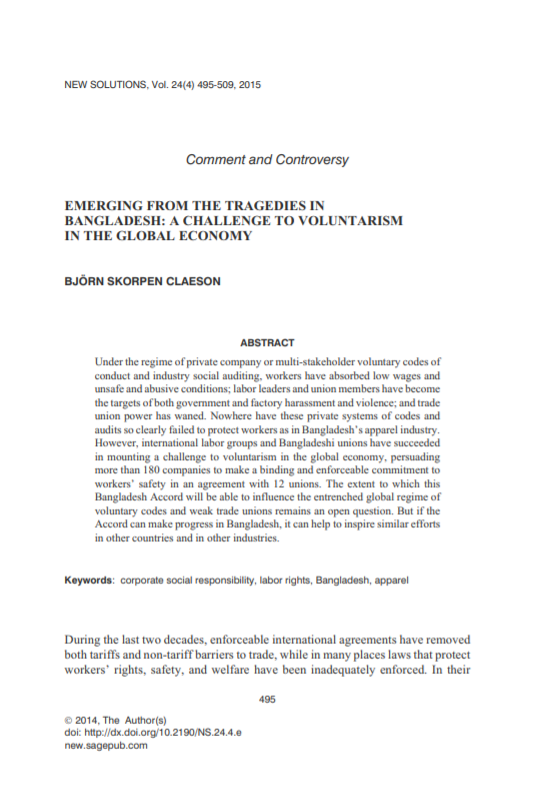Under the regime of private company or multi-stakeholder voluntary codes of conduct and industry social auditing, workers have absorbed low wages and unsafe and abusive conditions; labour leaders and union members have become the targets of both government and factory harassment and violence; and trade union power has waned. Nowhere have these private systems of codes and audits so clearly failed to protect workers as in Bangladesh’s apparel industry. However, international labour groups and Bangladeshi unions have succeeded in mounting a challenge to voluntarism in the global economy, persuading more than 180 companies to make a binding and enforceable commitment to workers’ safety in an agreement with 12 unions.
The extent to which this Bangladesh Accord will be able to influence the entrenched global regime of voluntary codes and weak trade unions remains an open question. But if the Accord can make progress in Bangladesh, it can help to inspire similar efforts in other countries and in other industries.

